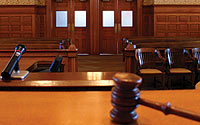
A federal judge has ruled that comScore can hold off on disclosing confidential information, including names of clients,
to Web users suing the company for alleged privacy violations.
U.S. District Court Magistrate Judge Young Kim in the Northern District of Illinois ruled last
week that comScore need not reveal a host of data until the litigants -- Mike Harris and Jeff Dunstan -- can prove that their case should be certified as a class-action.
Kim accepted comScore's argument that Harris and Dunstan probably will settle if they can't obtain class-action status. Therefore, comScore need not disclose information that
will only be relevant if the case goes to trial, Kim ruled.
advertisement
advertisement
Kim specifically ruled that comScore need not yet disclose internal emails, data about the development of
its software, and client relationships and names.
At the same time, Kim ruled that comScore must tell lawyers for Harris and Dunstan some information that could be
relevant to questions about whether the case should proceed as a class-action. Among other data, comScore must disclose what information it sold to clients.
The
lawsuit against comScore dates to last August, when Harris and Dunstan sued the company for allegedly duping them into installing monitoring software by bundling it with free programs, like screensavers. They allege that many users are not told about
the monitoring software until after they have begun installing it. Once users download the software, comScore can access their Web activity and draw on that information in its market research
reports.
The original complaint also alleges that comScore did not just collect data from users who had downloaded the monitoring software, but also scanned files on
any network those users' computers connected to. Harris and Dunstan accuse comScore of violating the federal wiretap law and computer fraud law, as well as Illinois state laws.
Last December, comScore apparently admitted that Mac software in use between September 2009 and June 2010 potentially allowed the company to gather some data from Mac users'
networks. "A bug in the Macintosh version of its software potentially allowed the software to count the number of specific types of files located on networks to which panelists’ Macintosh
computers were connected," comScore said in its court papers.
The company also said that none of the data collected through the Mac Panel was shared with any third
parties.